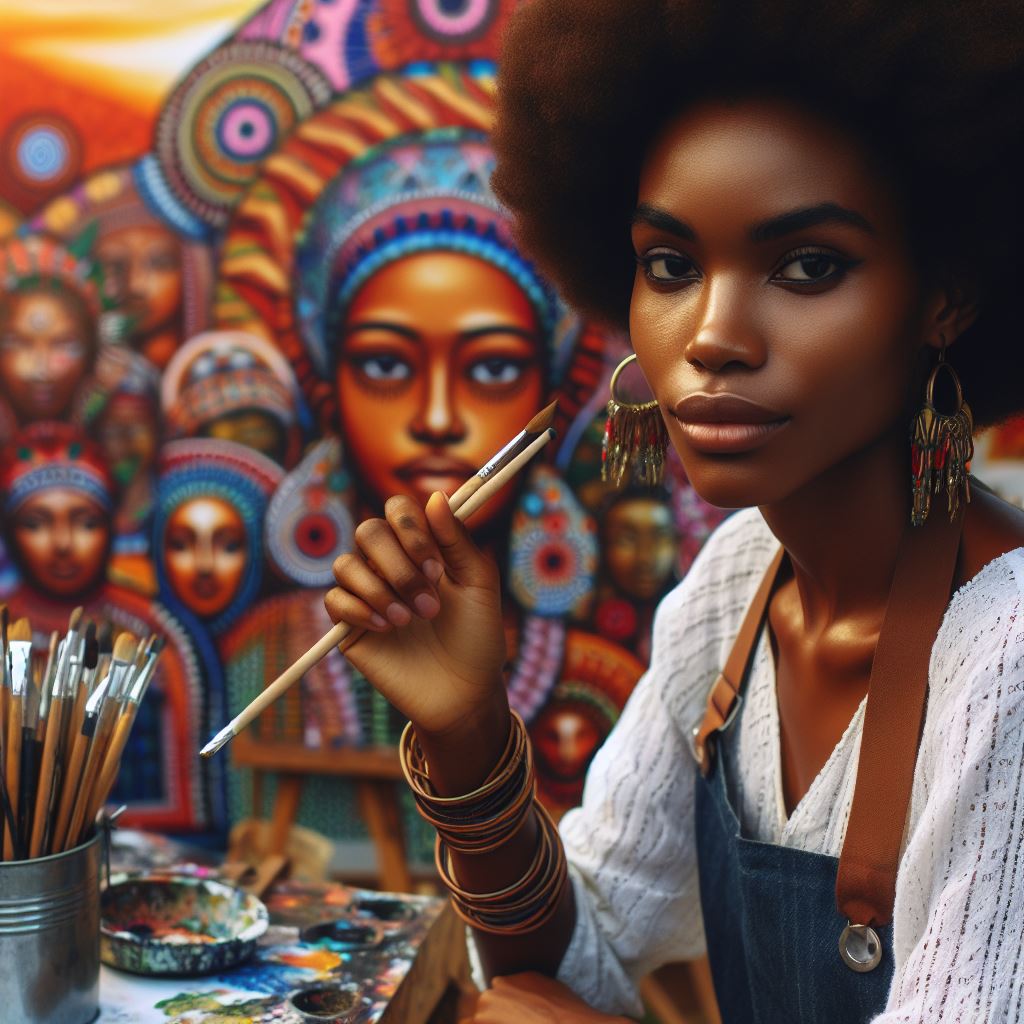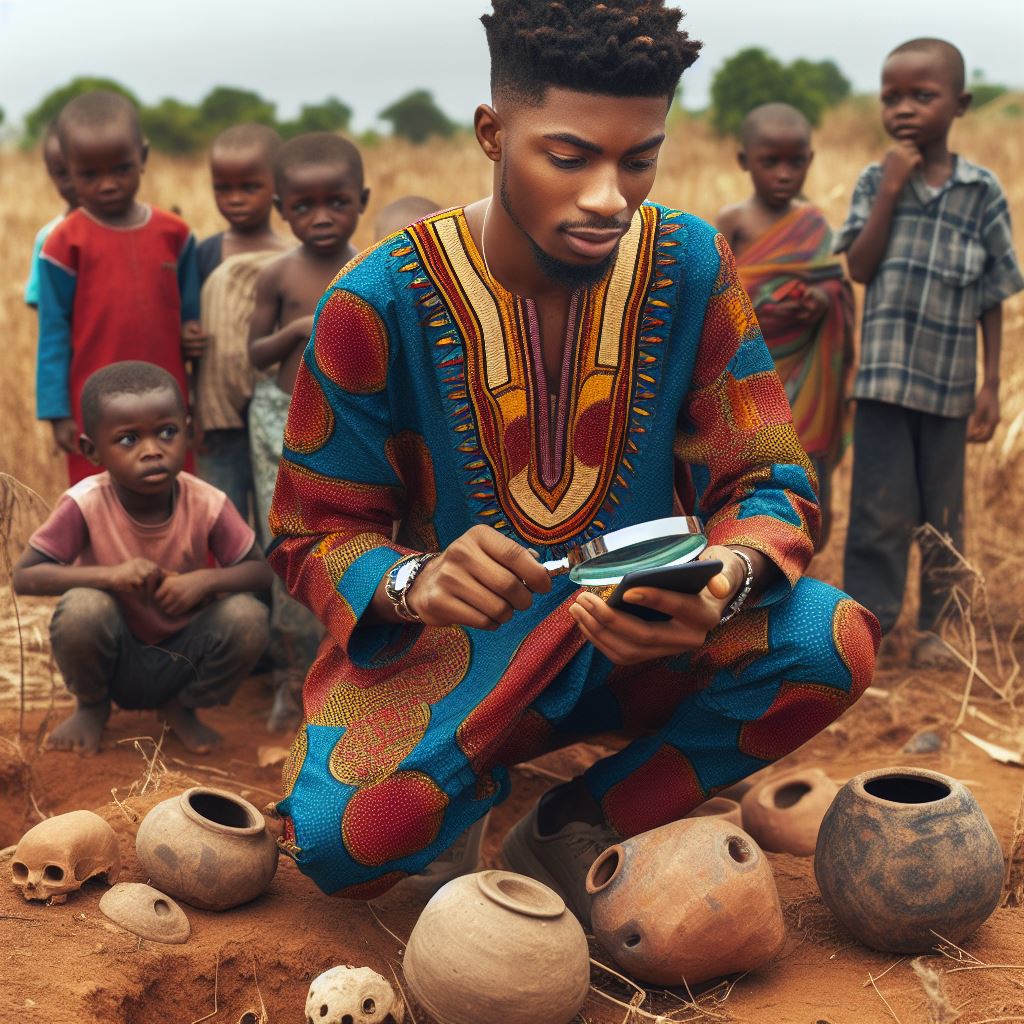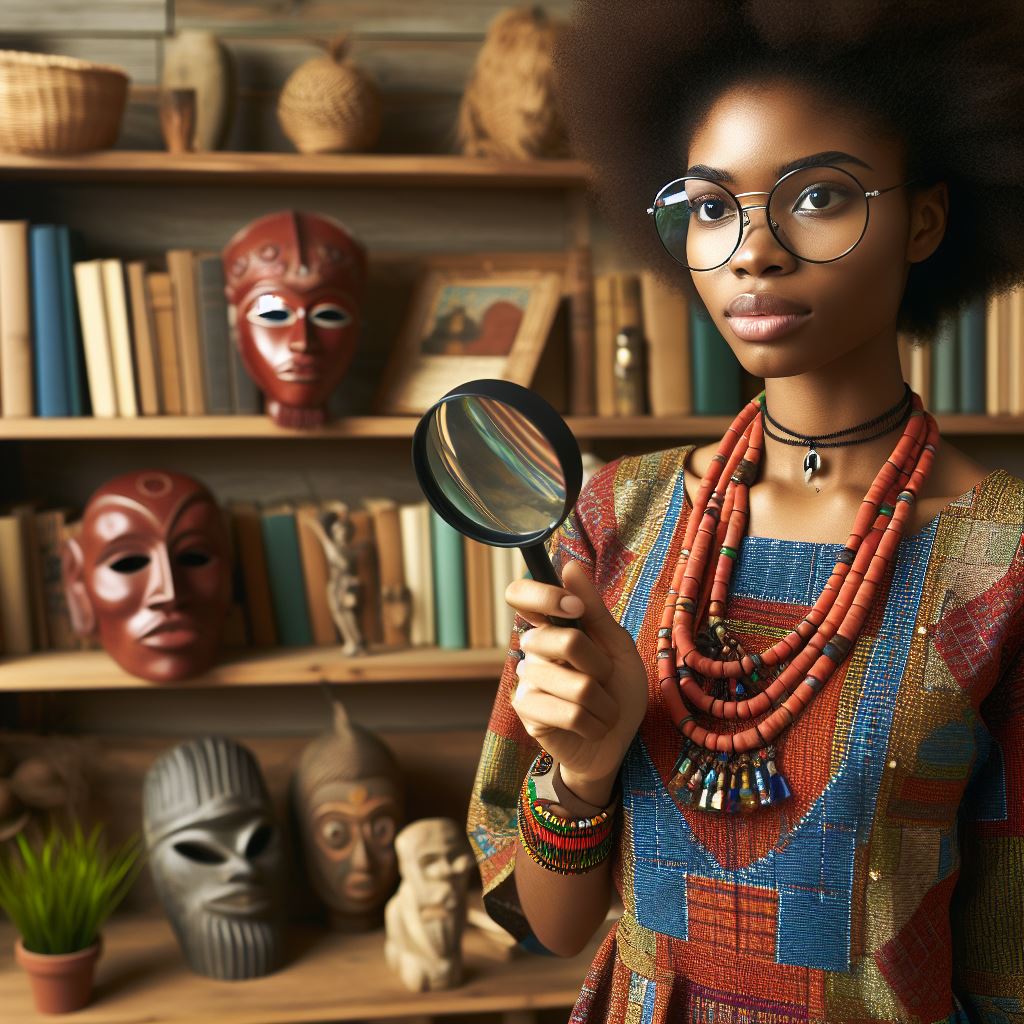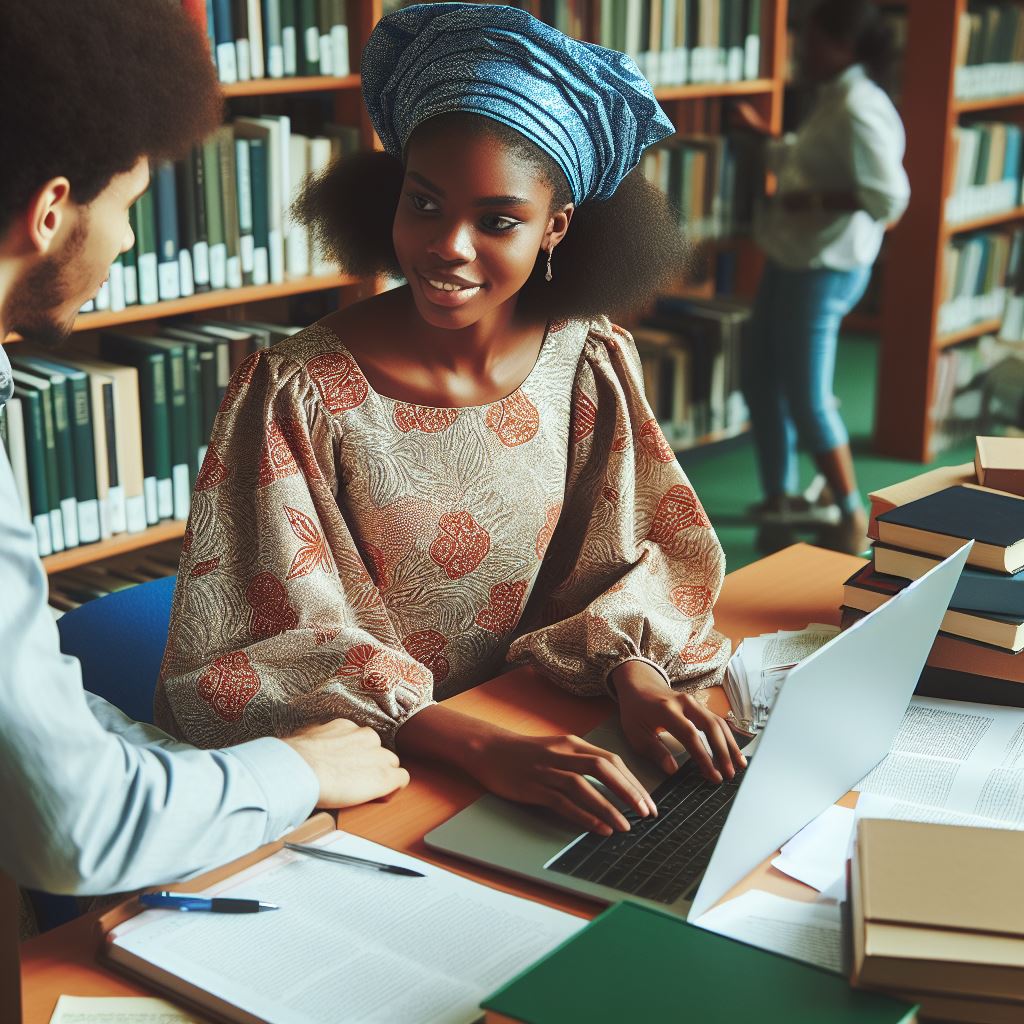Introduction
Art communities and networks play a vital role in fostering creativity and collaboration among artists in Nigeria.
These platforms provide artists with opportunities to connect, share ideas, and showcase their work to a larger audience.
Currently, Nigeria has a vibrant and diverse art scene with numerous communities and networks that cater to different artistic disciplines.
From traditional art forms to contemporary expressions, these communities provide a platform for artists to collaborate, learn from each other, and grow their craft.
With the rise of social media and digital platforms, artists now have more opportunities to connect with their peers and showcase their work to a global audience.
Despite challenges such as limited funding and resources, Nigerian art communities and networks continue to thrive and play a crucial role in shaping the country’s cultural landscape.
Through collaborations, exhibitions, workshops, and events, these platforms contribute to the development of the arts in Nigeria and help artists gain recognition both locally and internationally.
By strengthening these networks and fostering a supportive environment for artists, Nigeria can continue to build a strong and vibrant art community that contributes to the country’s cultural and socio-economic development.
Historical Overview
Art communities in Nigeria have a rich history dating back to ancient civilizations. Traditional art forms were deeply rooted in rituals and cultural practices.
Key events like the Benin Empire helped in the development of artistic expressions.
Colonialism introduced Western art forms and techniques to Nigerian artists.
The Nigerian Civil War in the late 1960s influenced art as a form of protest and expression.
Development of Art Communities
The emergence of art schools and galleries in the 20th century fostered artistic communities.
The Zaria Art Society, formed in the 1950s, was pivotal in shaping modern Nigerian art.
Artist collectives like the Oshogbo School popularized indigenous art forms and techniques.
The Nsukka Group, founded in the 1970s, focused on experimentation and innovation in art.
Art communities began to thrive in urban centers like Lagos and Abuja.
Key Movements and Events
- The Osogbo Art Movement of the 1960s brought attention to traditional Yoruba art.
- The inclusion of Nigerian artists in international exhibitions raised their profile globally.
- The African Artists Foundation was established to support contemporary African art.
- Nigerian artists like Ben Enwonwu gained international acclaim for their work.
- The National Gallery of Art was established to preserve and promote Nigerian art.
Contributions of Past Artists
- Ben Enwonwu’s iconic sculptures and paintings highlighted Nigerian culture and history.
- Tutu, his famous painting, became a symbol of Nigerian identity and pride.
- Bruce Onobrakpeya’s innovative printmaking techniques influenced a generation of artists.
- Susanne Wenger’s work in Osogbo helped revive traditional Yoruba art forms.
- Uche Okeke’s advocacy for Nsukka Art and Uli symbols shaped contemporary Nigerian art.
Read: How to Market Your Art in Nigeria Effectively
Key Art Communities in Nigeria
Visual Arts Society of Nigeria (VASON)
- VASON is a community of visual artists promoting art education and cultural exchange.
- They organize exhibitions, workshops, and seminars to encourage creativity.
- One of their successful projects is the annual “Art in the Park” exhibition.
National Association of Nigerian Theatre Arts Practitioners (NANTAP)
- NANTAP aims to enhance the practice of theatre arts in Nigeria.
- They hold theatre productions, training programs, and advocacy campaigns.
- A successful collaboration was the staging of the play “The Gods Are Not To Blame.”
Life In My City Art Festival
- This community organizes an annual arts festival in Enugu to showcase creativity.
- They offer artist residencies, workshops, and opportunities for networking.
- A successful project was the winning sculpture installation at the festival.
Read: Exploring Art Therapy in Nigeria
Challenges Faced by Art Communities in Nigeria
Challenges that art communities and networks face in Nigeria
- Lack of Funding: Art communities in Nigeria struggle with limited financial resources to support their activities.
- Infrastructure Deficiency: The lack of proper facilities and venues hinders the growth and visibility of art communities.
- Limited Access to Resources: Artists in Nigeria often face challenges in accessing materials, equipment, and educational opportunities.
- Inadequate Government Support: Government policies and funding for the arts are usually insufficient to sustain art communities.
- Competition for Attention: With a diverse range of art forms in Nigeria, communities must compete for audience engagement and recognition.
- Cultural Prejudice: Some traditional beliefs and societal norms may not fully appreciate or support contemporary art expressions.
Potential solutions to overcome these challenges
- Diversifying Funding Sources: Art communities can seek support from private donors, corporations, and international grants.
- Building Collaborative Networks: By working together, art communities can share resources and skills to overcome challenges collectively.
- Investing in Education: Providing art education and training can empower artists to create innovative works and sustain their practices.
- Advocating for Policy Changes: Art communities can lobby for improved government support and policies that promote the arts sector.
- Developing Digital Platforms: Utilizing online platforms can help art communities reach a wider audience and showcase their works.
- Engaging with Local Communities: Building relationships with local residents can generate interest and support for art initiatives.
Overall, addressing the challenges faced by art communities in Nigeria requires a multi-faceted approach that involves collaboration, advocacy, and innovation.
By working together and advocating for change, art communities can overcome obstacles and thrive in a dynamic cultural landscape.
Read: The Evolution of Nigerian Art Over Decades
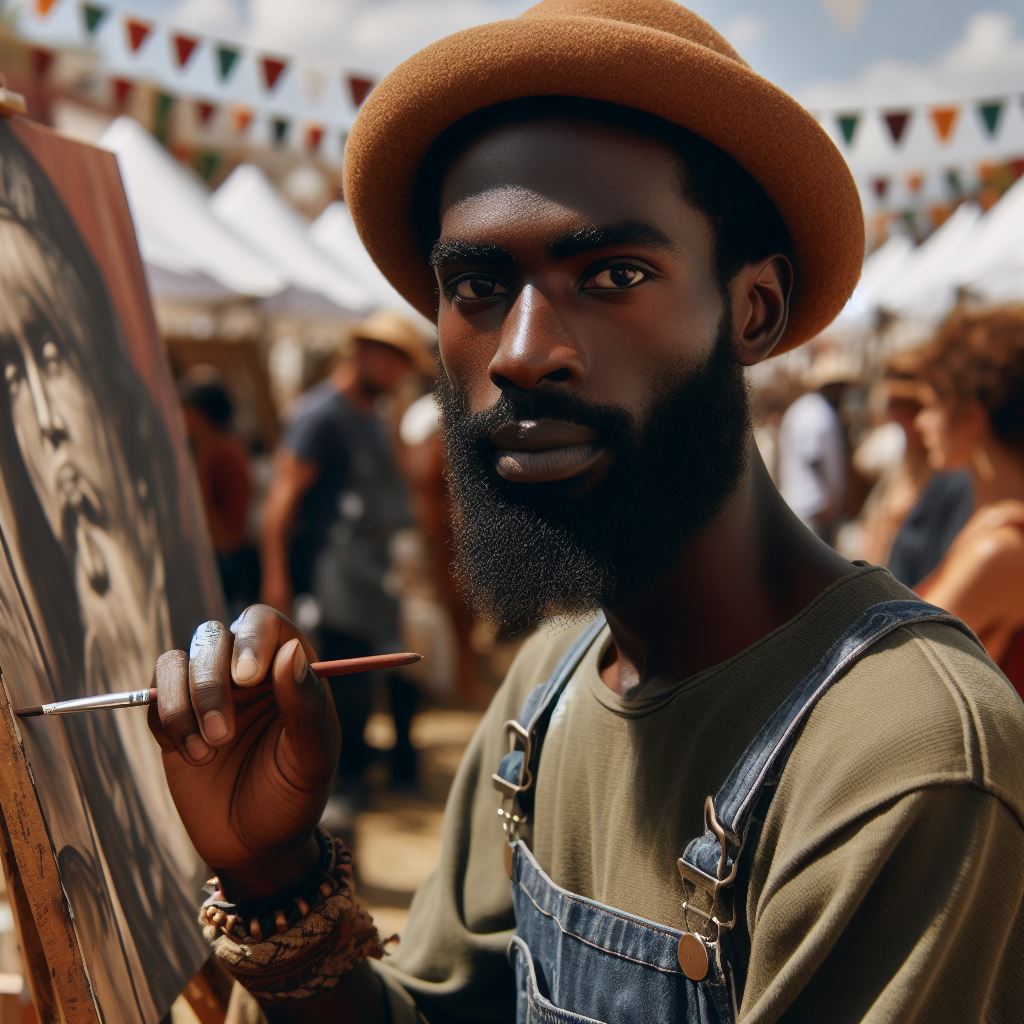
Learn More: Contributions of Nigerian Women in the Arts
Opportunities for Growth and Collaboration
Opportunities for growth and collaboration within the Nigerian art community
Collaboration in the Nigerian art community opens up a world of possibilities for growth and development.
By working together, artists, art communities, and networks can leverage each other’s strengths and resources to create a richer artistic landscape.
One key opportunity for growth lies in the sharing of knowledge and skills.
Through collaboration, artists can learn from each other, pushing the boundaries of their creativity and expanding their repertoire.
Potential benefits of partnerships and alliances between different art communities and networks
Partnerships and alliances between different art communities and networks can also lead to greater visibility and exposure for artists.
By pooling resources and networks, artists can reach a wider audience and attract more attention to their work.
Furthermore, collaborations can open up new avenues for funding and support.
By joining forces, artists and art communities can access new funding opportunities, grants, and sponsorships that may not have been available to them individually.
Examples of successful collaborations that have positively impacted the art scene in Nigeria
One successful example of collaboration in the Nigerian art scene is the Lagos Art and Fashion Week.
This annual event brings together artists, designers, and fashion enthusiasts to showcase their work and collaborate on projects that blur the lines between art and fashion.
Another example is the collaboration between the Nike Art Gallery and local artisans in Lagos.
By working together, the gallery and artisans have created unique pieces that celebrate Nigerian culture and heritage, while also providing economic opportunities for the artisans.
Overall, partnerships and alliances in the Nigerian art community have the potential to spur innovation, foster creativity, and elevate the profile of Nigerian artists on both a local and global scale.
By embracing collaboration, artists and art communities can truly thrive and make a lasting impact on the art scene in Nigeria.
Read: Interview with Emerging Nigerian Artists
Delve into the Subject: How to Apply for Music Courses in Nigeria
Gain More Insights: Historical Sites and Landmarks in Nigerian Education
Transform Your Career with Expert Guidance
Get personalized mentorship consulting that’s tailored to your unique path. Our expert advice is actionable and exclusive.
Get StartedYou Might Also Like: Interview with Prominent Nigerian Art Educators
Gain More Insights: Online Courses for Christian Religious Studies in Nigeria
You Might Also Like: Impact of African Art in Global Design Trends
Impact of Digital Technology on Art Communities
Exploring the role of digital technology in shaping art communities in Nigeria is crucial in understanding the evolution of the art scene in the country.
Digital technology has significantly revolutionized the way artists connect, engage, create, and share their work within the community.
Facilitating networking and collaboration
Social media platforms such as Instagram, Twitter, and Facebook have provided artists with a global stage to showcase their artworks.
Online platforms like Behance and DeviantArt have enabled artists to connect with like-minded individuals, form collaborations, and share ideas.
Virtual exhibitions and art auctions have flourished, allowing artists to reach a wider audience and gain recognition beyond geographical boundaries.
Embracing digital tools for growth
It is essential for art communities in Nigeria to embrace digital tools and platforms to stay relevant in the increasingly digital world.
By leveraging digital technology, artists can market their work, engage with collectors, and build a strong online presence.
Artists can explore new mediums, techniques, and styles through online tutorials, workshops, and webinars, enhancing their artistic skills and expanding their creative horizons.
In a nutshell, the impact of digital technology on art communities in Nigeria is profound.
Embracing digital tools and platforms is essential for the growth and sustainability of the art scene in the country.
Social media and online platforms have become indispensable tools for networking, collaboration, and showcasing artworks, connecting artists and art enthusiasts worldwide.
Gain More Insights: Sculpture and Installations: Nigerian Perspectives
Delve into the Subject: Art Therapy: Healing Through Nigerian Art
Gain More Insights: Arabic and Islamic Studies: Student Experiences
Conclusion
We have explored the vibrant and diverse art communities and networks in Nigeria.
These communities serve as platforms for artists to connect, collaborate, and showcase their work.
They play a crucial role in promoting cultural exchange and creativity in the country.
Art communities and networks in Nigeria are essential for fostering growth and development in the arts sector.
They provide opportunities for artists to learn from one another, gain exposure, and access valuable resources.
To strengthen and expand art communities in Nigeria, it is crucial to invest in education and training for artists, provide more funding and support for artistic projects, and create more platforms for artists to exhibit their work.
Additionally, promoting cultural exchange with other countries and encouraging collaboration between artists from different backgrounds will help in enriching the art scene in Nigeria and fostering a vibrant creative ecosystem.
By recognizing the importance of art communities and networks and taking steps to support their growth, Nigeria can continue to nurture and showcase its rich artistic talent to the world

